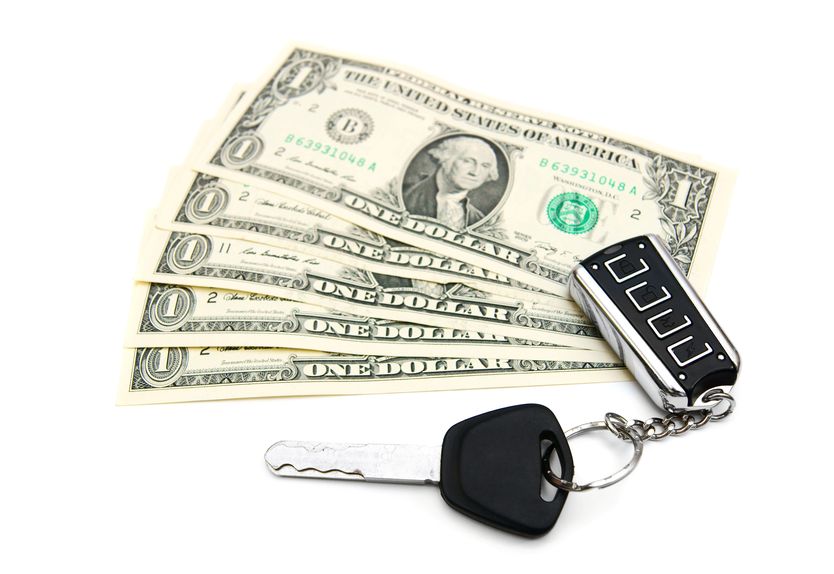 Consumer Delinquencies Continue Decline in Third Quarter 2012
Consumer Delinquencies Continue Decline in Third Quarter 2012
WASHINGTON – Consumer delinquencies continued to decline in the third quarter of 2012, with bank card delinquencies falling to an 18-year low as consumers strengthen their financial base amid economic uncertainty, according to results from the American Bankers Association’s Consumer Credit Delinquency Bulletin.
During the third quarter, bank card delinquencies dropped to their lowest levels since 1994, falling 18 basis points to 2.75 percent of all accounts and well below the 15-year average of 3.89 percent.
The composite ratio, which tracks delinquencies in eight closed-end installment loan categories, fell 8 basis points to 2.16 percent of all accounts in the third quarter, below the 15-year average of 2.40 percent. (See Historical Fact Sheet.) The ABA report defines a delinquency as a late payment that is 30 days or more overdue.
James Chessen, ABA’s chief economist, attributed the improvement to consumers’ ongoing efforts to better manage their finances.
“Consumers are paying close attention to their finances as they continue to pay down debt in an uncertain economy,” Chessen said. “The conservative approach consumers have taken to credit over the last several years has allowed them to better manage their debt and better position themselves for the future.”
While Chessen found the continued decline encouraging, he noted the absence of a comprehensive improvement across categories – something that hasn’t been seen since the first quarter of 2012.
“The lack of broad-based improvement remains a cause for concern,” Chessen said. “Some categories have reached historical lows leaving little room for improvement. In addition, slow job growth, continued uncertainty and falling consumer confidence could signal rising delinquencies in the year ahead.”
The expiration of the payroll tax cut will also put increased pressure on consumers.
“Many consumers will see their real disposable income take a significant hit in the New Year,” Chessen said. “Changes in payroll withholding will decrease disposable income, reducing retail sales and making it more difficult for some people to meet their financial obligations.”
Chessen also noted that delinquencies in two home-related loan categories rose in the third quarter.
“While there are strong signs that the housing market has turned a corner, it will take several quarters before delinquency numbers begin to reflect those trends,” Chessen said.
Chessen believes that consumer confidence will play a critical role in our economy going forward.
“Confidence has already fallen sharply and many consumers have responded by closing their wallets,” Chessen said. (See economic charts.)
The third quarter 2012 composite ratio is made up of the following eight closed-end loans. All figures are seasonally adjusted based upon the number of accounts.
CLOSED-END LOANS
- Personal loan delinquencies fell from 2.15 percent to 2.14 percent.
- Direct auto loan delinquencies rose from 0.92 percent to 0.95 percent.
- Indirect auto loan delinquencies fell from 2.23 percent to 2.08 percent.
- Mobile home delinquencies rose from 3.15 percent to 3.51 percent.
- RV loan delinquencies rose from 1.15 percent to 1.27 percent.
- Marine loan delinquencies rose from 1.53 percent to 1.55 percent.
- Property improvement loan delinquencies fell from 0.90 percent to 0.89 percent.
- Home equity loan delinquencies rose from 4.09 percent to 4.20 percent.
In addition, ABA tracks three open-end loan categories:
OPEN-END LOANS
- Bank card delinquencies fell from 2.93 percent to 2.75 percent
- Home equity lines of credit delinquencies rose from 1.91 percent to 1.93 percent.
- Non-card revolving loan delinquencies fell from 1.35 percent to 1.28 percent.
Consumer Tip
For borrowers having trouble paying down debts, ABA advises taking action — sooner rather than later — to solve debt problems with the following tips:
- Talk with creditors – the sooner you talk to them, the more options you have;
- Don’t charge more purchases until your problems are solved;
- Avoid bankruptcy – it’s a short-term solution with long-term consequences; and
- Contact Consumer Credit Counseling Services at 1-800-388-2227.
For more information on budgeting, saving and managing credit, visit the ABA Education Foundation’s consumer web page at http://www.aba.com/Consumers/
Glossary:
Indirect auto loan: loan arranged through a third party such as an auto dealer.
Direct auto loan: loan arranged directly through a bank.
Delinquency: late payment that is 30 days or more overdue.
Bank card: a credit card provided by a bank.
Closed-end loan: a loan for a fixed amount of money with a fixed repayment period and regularly scheduled payments.
Open-end loan: a loan with a fixed amount of available credit but a balance that fluctuates depending on usage such as a line of credit.
The American Bankers Association represents banks of all sizes and charters and is the voice for the nation’s $14 trillion banking industry and its two million employees. Learn more at aba.com.








